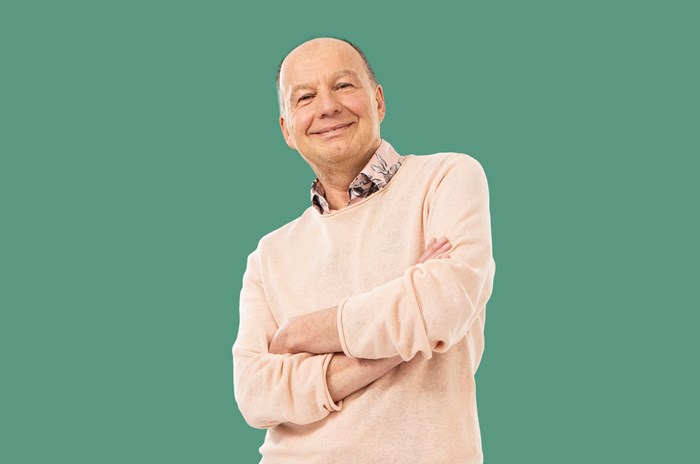
Involve your family and friends in mental problems | Mental Health Awareness Week 2022
“'I had a black dog, his name was Depression'. Have you ever seen that video?” says Jos Smans (62), social worker at U-center. “That always impresses family and friends. That makes depression so miserable and lonely, but you need the other person to get out of it.” He, therefore, shares three tips for Mental Health Awareness Week 2022: how do you involve others in your mental problems? And what if you're on your own?
“The black dog in the film is a striking metaphor for the signs and characteristics of depression,” says Jos. He lives an eight-minute bike ride from U-center and has been working there since the beginning: about fourteen years. “I find my work very fascinating: the people who come and work there. And the holistic view appeals to me. I put a lot of passion into it.” One of his tasks is to involve family and friends in the treatment. How does he do that? And what can you learn from it?
This article is outdated and may contain information that is no longer relevant.
Quote
While the rest of the world was enjoying life, I could only see it through the black dog. Activities that usually brought me pleasure, suddenly ceased to. (…) Doing anything or going anywhere required superhuman strength. In social situations, he would sniff out what confidence I had and chase it away. My biggest fear was being found out.
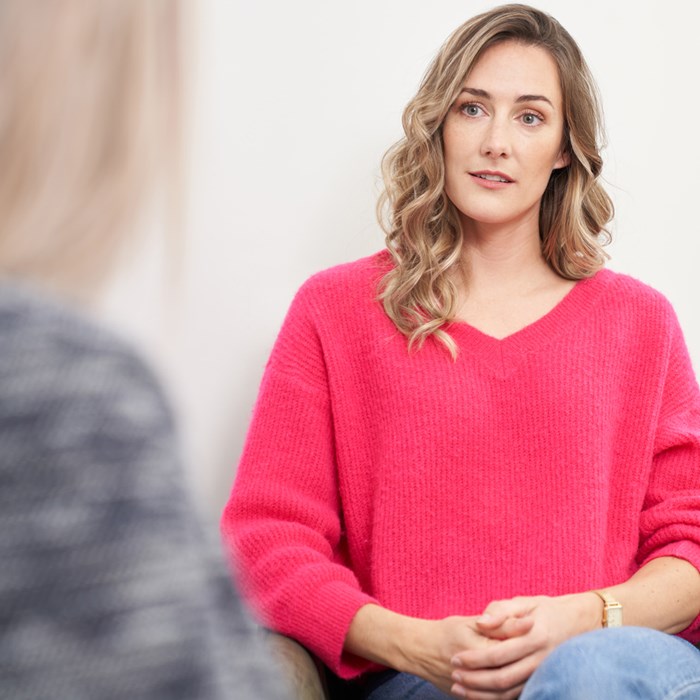
Tip 1: Inform your family and friends about your psychological complaints
“A broken leg is easier to talk about,” says Jos. “But try to be honest. Then you will notice that many more people have psychological problems.
“Give your environment information: what is depression or addiction sensitivity? And how do you best deal with it? Then they can help you better. “At U-center we also have several meetings with support figures. For example, we show them the video about the black dog.”
Mental Health Awareness Week 2022
Talking about psychological complaints is also the goal of the Mental Health Awareness Week, from 9 to 15 May 2022. This year organizations from all over the world are calling attention to loneliness. Because feeling disconnected has a major impact on your mental well-being. That's why Jos's two following tips for staying in touch with others.
Tip 2: Apply the drama- and winners triangle
“Your family and friends often have a hard time with your situation,” says Jos. “They are anxious, tired and don't know it anymore. You often end up together in a so-called drama triangle. Then they must change with you to a 'winner's triangle'."
Drama Triangle
In a drama triangle, there are three roles: rescuer, victim and accuser. The rescuer takes on too much responsibility and therefore also gives unsolicited help, tips and advice. This makes the victim more passive, grumpy and demanding and says, for example: “You don't understand me and it's easy to talk.” The prosecutor is critical and judgmental, like, “Shall I do it again?” To which the victim thinks: can you see that I am not good enough?
Winners Triangle
In the winner's triangle, the rescuer turns into a coach, the victim into a student, and the prosecutor into a supporter. The coach helps the student find his way and holds up a mirror to him in a friendly way. He also clearly indicates his limits to encourage the student to take the wheel into their own hands. The student is eager to learn and does not think: I will never succeed, but: you learn from mistakes. The supporter encourages the student from the sidelines and trusts his qualities.
How do you fulfil those winning roles as family and friends? “For example, the World Health Organization (WHO) made a follow-up video to that of the black dog: 'Living with the black dog'”, says Jos. “We also show them to family and friends at U-center.” What else does he think you can do to get your family and friends involved in your mental health issues?
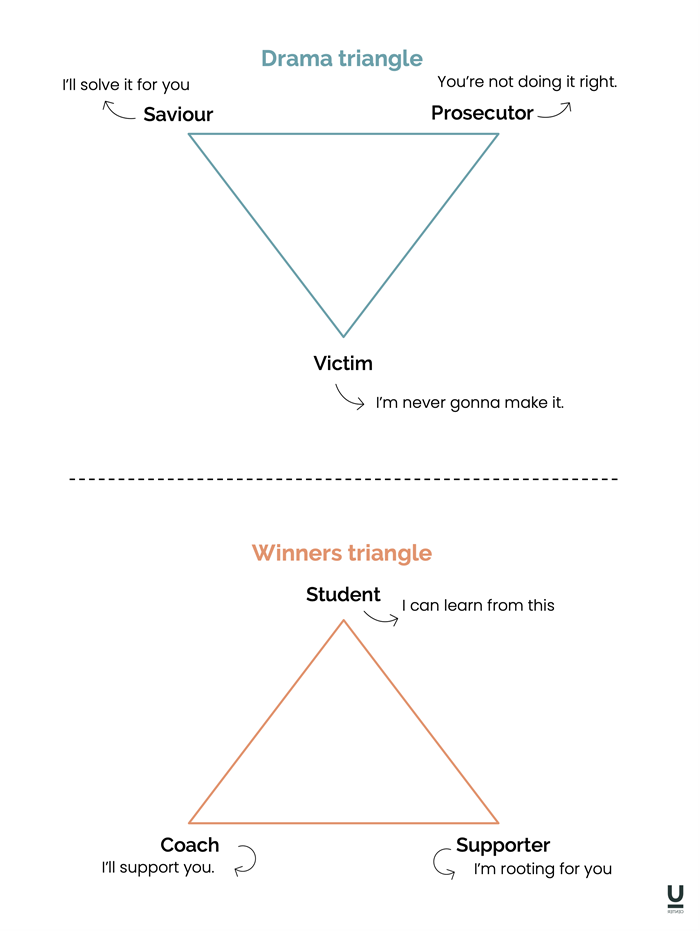
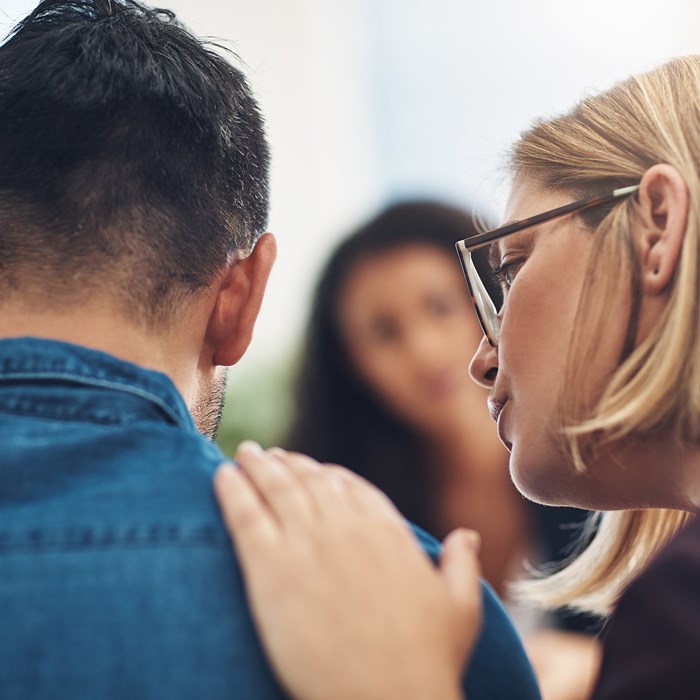
Tip 3: Make it clear how others can help you
“You need the other person to develop your future,” says Jos. “You can't do it alone.” That is why he advises bringing the wishes and possibilities of you and the other person together. At U-center, you make a future development plan for this, including a signalling plan. In it, you write down what your sources of stress are and how you react when your mental 'traffic light' is green, orange or red. What can you and others do then? Everyone also leaves the house with a weekly schedule. “Rhythm in your day is very important”, says Jos.
Involving family and friends: how U-center does it
During the indication day:
- Conversation (hetero-anamnesis) with your main support figure and one of your children about your problems (separate from you, with your permission, you can read the report).
- Psychoeducation with your main support figure (and three other clients and their support figures). Here you will learn about mental problems, the role of family and friends and the approach of U-center.
In your second week of treatment: Talk to you and two or three of your support staff about U-center's findings and the proposed treatment plan.
In your third treatment week: 'Friends & family meeting' with two or three of your support figures. We watch the two videos about the black dog and discuss each one's roles. What do you need to break patterns?
At the end of your admission: Conversation with you and your support persons about your future development plan and what you ask of others in it.
During your treatment at home (outpatient aftercare): Conversation with you and your support figures about how the implementation of your future development plan is going (possibly relationship therapy in the area).
Extra 'system coaching': Can be done at any time during your treatment.
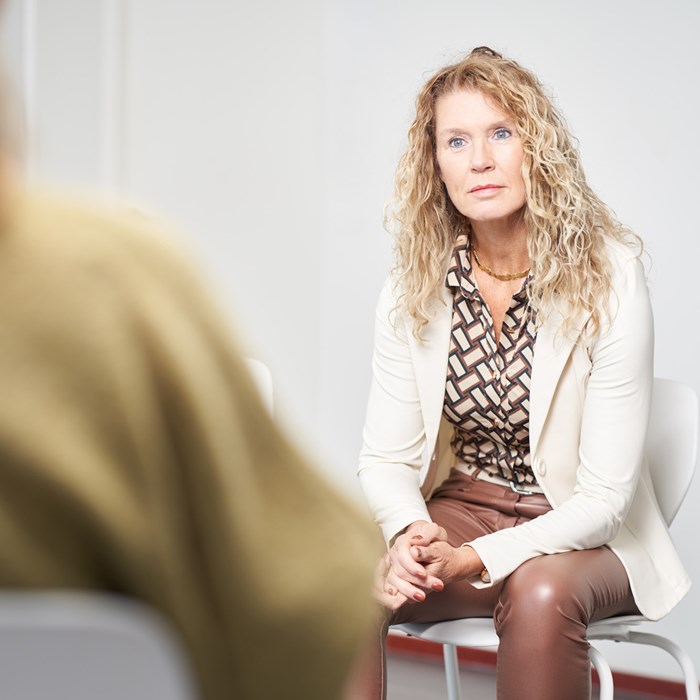
What if you're on your own?
“Many people with a mental illness end up in isolation,” says Jos. “A black dog like that will frame your life. You no longer want to be in contact. But the point is: how do you handle it in the future? For example, call old friends, learn how to make contact more easily or look at hobbies. At U-center we help you with that and we work on the cause: why did you become so isolated? Involving others in your treatment is therefore very important to us at U-center. Ultimately, you have to continue at home with what you learn here.”
Quote
Just like a real dog, you (preferably together with family and friends) have to embrace, understand, and learn new tricks for depression. Only then does it heal.
Watch the videos mentioned in this article
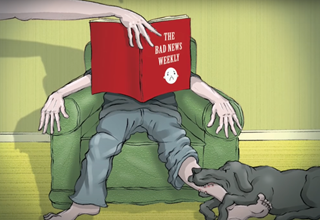
6 minutes
Living with a black dog
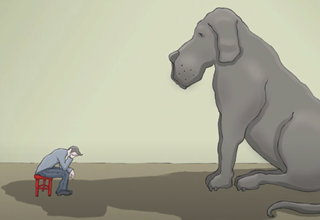
4 minutes






